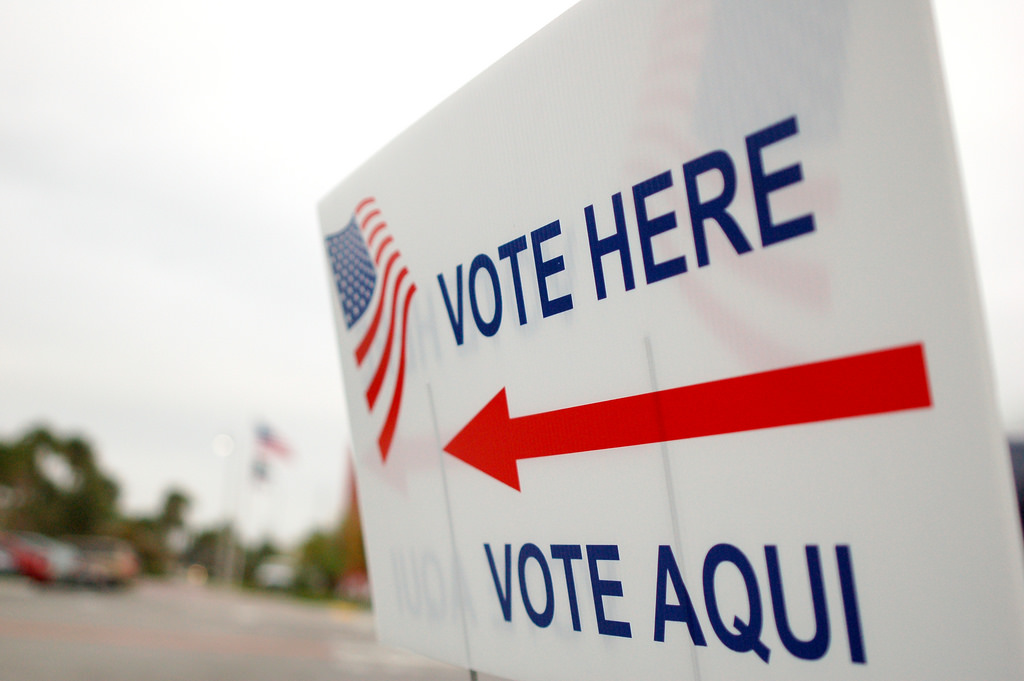The National Popular Vote Bill: Innovative Solution or End Run around the Constitution?
Donald Trump won the 2016 presidential election with 306 Electoral College votes. He became the President of the United States despite the fact that more people voted for Hillary Clinton. Clinton won the popular vote by over 2.8 million votes. This result revived a familiar debate—should we abolish the Electoral College? At this point, advocates for a change to the system acknowledge that it is unlikely that the change will come about via an amendment to the Constitution. As a result, lawmakers have put their creativity to the test.
Eleven states have now passed The National Popular Vote Bill. The bill addresses the way in which a state’s Electoral College Votes are allocated. The states that have passed the bill will, if a sufficient number of states also do so, assign their votes to the candidate who won the popular vote nationwide. The 11 states or districts that have passed the bill are California, Washington D.C., Hawaii, Illinois, Massachusetts, Maryland, New Jersey, New York, Rhode Island, Vermont, and Washington. These states carry a total of 165 Electoral College votes. If states with a combined total of 105 votes follow suit, the next presidential election will be determined by the popular vote. In 12 additional states, with 95 combined Electoral College votes, the bill has passed through at least one legislative house.
Amending the Constitution would require a two-thirds vote from both the House and the Senate. It also requires the support of three-fourths of state legislatures. In this divisive political climate, such consensus seems like a practical impossibility. The National Popular Vote Bill is an interstate compact—to achieve their objective, the states that favor such a policy need other states to pass the same kind of legislation.
Lingering behind the scenes of this debate are, of course, arguments for and against the Electoral College as a just method for selecting the president. When the system was conceived, it made sense for designated electors to travel to hear the messages of the candidates and to generally keep themselves well informed. From a pragmatic perspective, it would be disruptive to the lifestyle of an average citizen if each interested voter had to take time out of their schedule to travel to keep themselves informed. The founders were also concerned about the tyranny of the majority. A smaller group of electors could represent the interests of their constituents, with a decreased risk of havoc ensuing.
Perhaps even more importantly, the Electoral College system was intended to ensure that the interests of all of the states were represented in the election. Since the majority of the population lives in large, coastal cities, were it not for the Electoral College system, it would have been easy for a candidate’s stance on an issue or set of issues that affects coastal cities to determine the course of the election. This concern is still salient today.
Plenty of people think that the Electoral College system is unjust. They take it to be obvious that justice requires that the candidate who generates the most votes should get the job. They argue that, in the most recent election, there were almost three million votes that simply didn’t matter. They argue further that times have changed, and the concerns that were once raised about elections being determined by coastal cities are now equally pressing when it comes to battleground states. As a result of the current system, candidates spend most of their time campaigning in those states and considering how best to deal with the issues that face citizens in those particular locations. It appears to many that the stance or set of stances of a candidate with respect to an issue that strongly affects a battleground state can determine the course of an election.
The National Popular Vote Bill has the potential to change all of that. It would give candidates incentive to focus on issues that affect the general population. They would be fighting for the votes of the citizens at large, rather than for those of special interest groups from individual states that are important on an electoral map. Crucially, it would ensure that every vote truly counts.
Opponents of the bill argue that it constitutes an end run around the constitution. The founding fathers considered election by popular vote, but felt that justice required a system like the one we have now. Any change to that system requires a constitutional amendment. No exceptions.
Even if the bill passes in enough states, it may well be that the compact will require congressional approval. Article I, section 10, clause 3 of the Constitution dictates that, “No state shall, without the consent of Congress enter into any agreement or compact with another state, or with a foreign power.” In the past, some interstate compacts have required congressional approval and some have not.
This issue is virtually certain to hit the courts. The Compact Clause of Article I seems to be at odds with the authority granted to the states in Article II, to appoint electors “in such Manner as the Legislature thereof may direct.” In this respect, the Constitution seems to grant states quite a bit of latitude when it comes to the assignment of their electors.
The issues involved here seem, at face value, to be philosophical. Is democracy valuable? Are there some considerations that might, justly, outweigh the moral value of direct democracy? What kinds of moral relationships or obligations might exist between states and the population of the country as a whole?
It would be wonderful if the matter could be settled simply by settling these philosophical questions. These are tricky questions, the resolution of which would require much conversation and careful reflection and attention. If that were the task at hand, at least we would all share a similar goal.
Unfortunately, at the end of the day, this debate is deeply political. The Electoral College system has been quite beneficial for Republicans in recent elections. Not so for Democrats. Given the underlying motivations involved, this issue is unlikely to be resolved on the basis of philosophical considerations alone.





